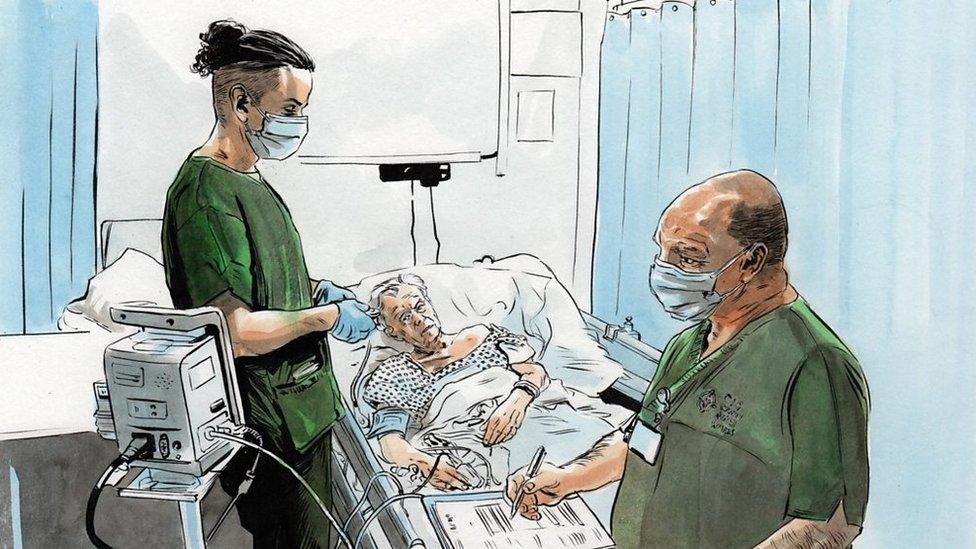Afghanistan: Cardiff artist's sadness at Taliban takeover
- Published
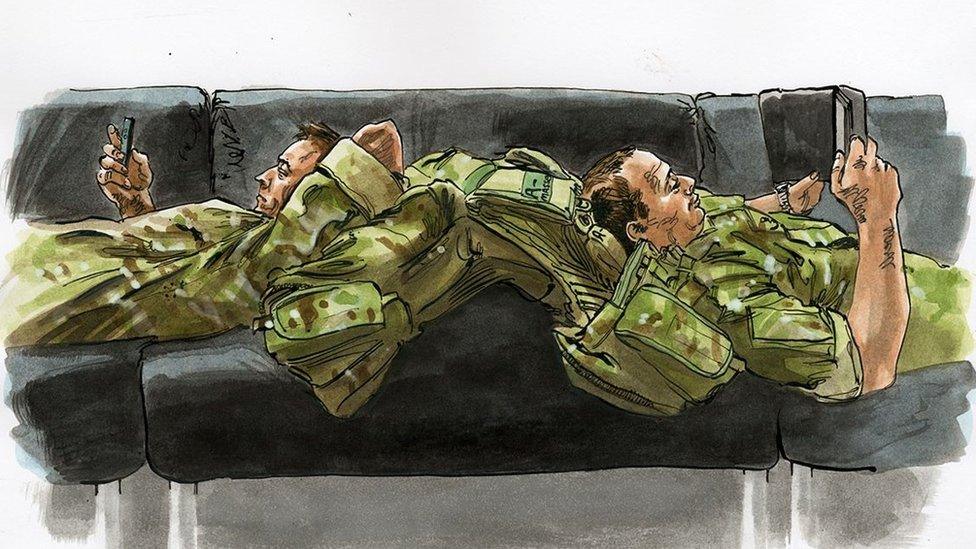
A war illustrator says it was almost inevitable Afghanistan would fall back under Taliban control once Nato forces left.
Dan Peterson, from Cardiff, travelled to Lashkar Gah in 2011, to draw images of The Queen's Dragoon Guards in firefights with the group.
The government that British forces helped set up has now collapsed with the president fleeing.
Taliban fighters are back in control of much of the country once again.
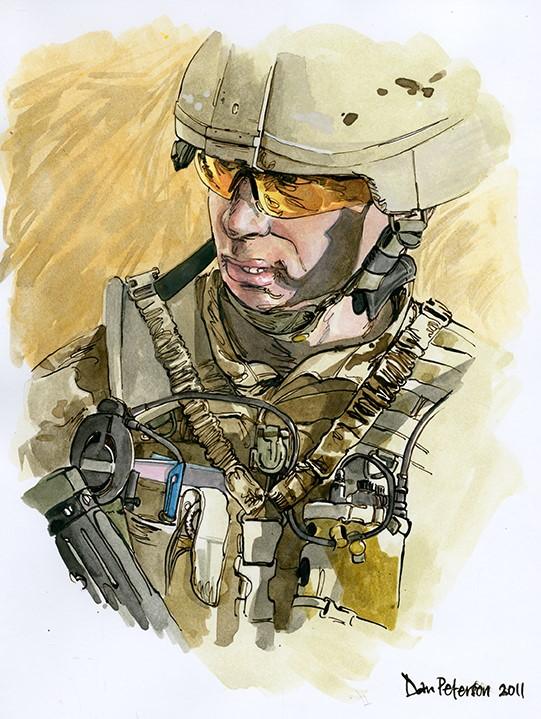

"People describe it as happening quickly, but it has been ongoing for 10 years - when I was there, they were talking of a handover," he said.
Mr Peterson described asking an Afghan army commander what needed to be done to keep a democratically elected government in charge.
"He replied candidly: 'Kill all the Taliban'."
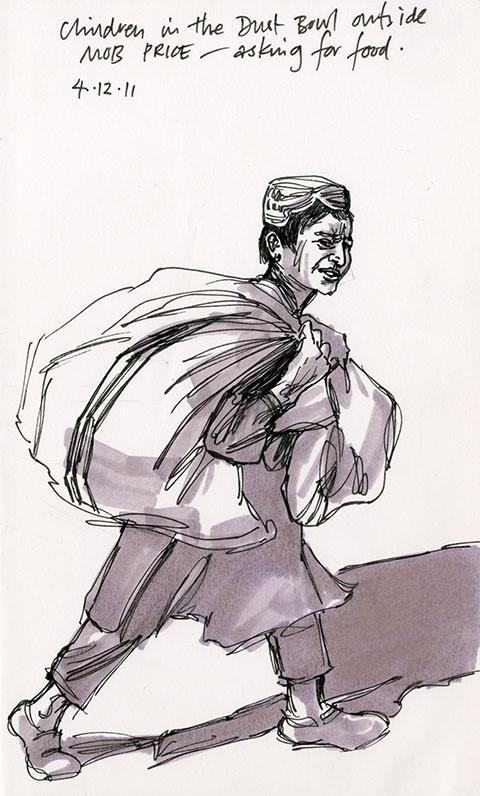
"There are lots of issues, they have been left in the lurch and dropped, we have walked away, while there has been talk in the press of the Afghan army not being trained well.
"But the main thing is fear of repercussions, knowing what the Taliban is capable of and how they treated their enemies.
"It's very powerful in war and I knew they couldn't deal with it - they need their allies."
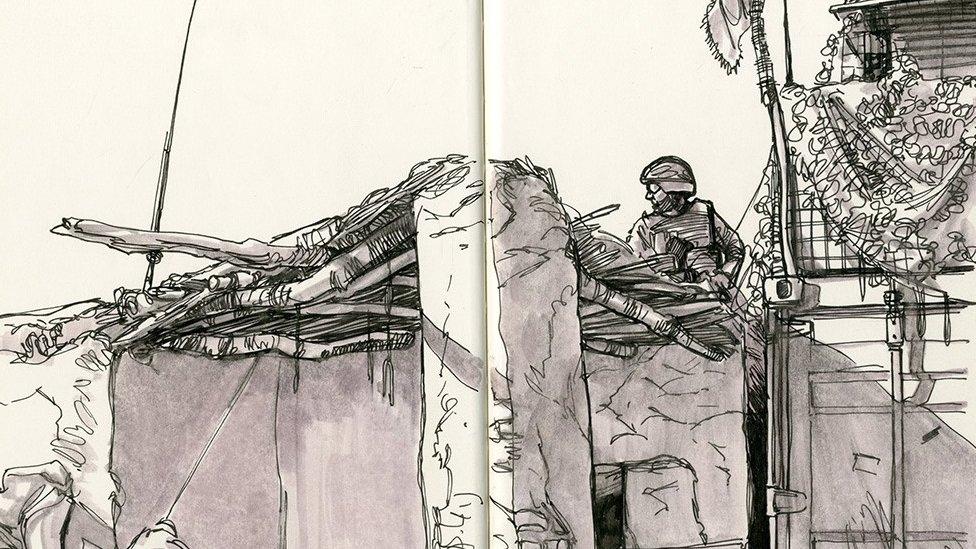
Mr Peterson is an illustrator who has created images of refugees in Bangladesh, the navy picking up people off the coast of Libya and nurses in field hospitals during the coronavirus pandemic.
He spent 14 years as a paratrooper in the Territorial Army when he decided to combine his military work with his art.
After getting in contact with a number of regiments, the Queen's Dragoon Guards agreed to take him, and he was flown to the British Army base Camp Bastion.
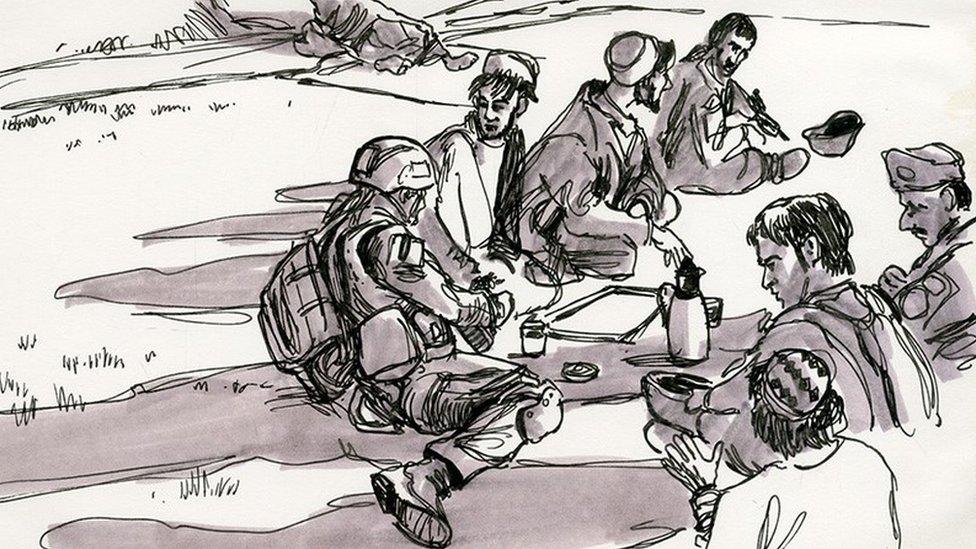
"They offered me body armour and told me that the Taliban had started targeting the press," Mr Peterson said.
"So, I decided to look like a soldier to blend in - I didn't want to get targeted.
"After a couple of days of acclimatising, I joined the Queen's Dragoon Guards on location, vehicle and foot patrols, three weeks in operations on Taliban-occupied, where there were firefights."
Describing patrolling with the troops, he told BBC Wales: "The soldiers that I was with, and the work that they did with the civilians that were there, was one-to-one.
'Anger and bitterness'
"The children were there, they were free to mingle with the soldiers, to speak to them."
This "direct contact" with the Afghan public had been "very up close and personal", he added.
Mr Peterson explained that, since the country had effectively been retaken by the Taliban, there had been a lot of "anger and bitterness" from Afghan veterans as to why they were sent there.
This was because they had been told they were there for a "good reason - to bring some sort of normality to the people of Afghanistan," he said.
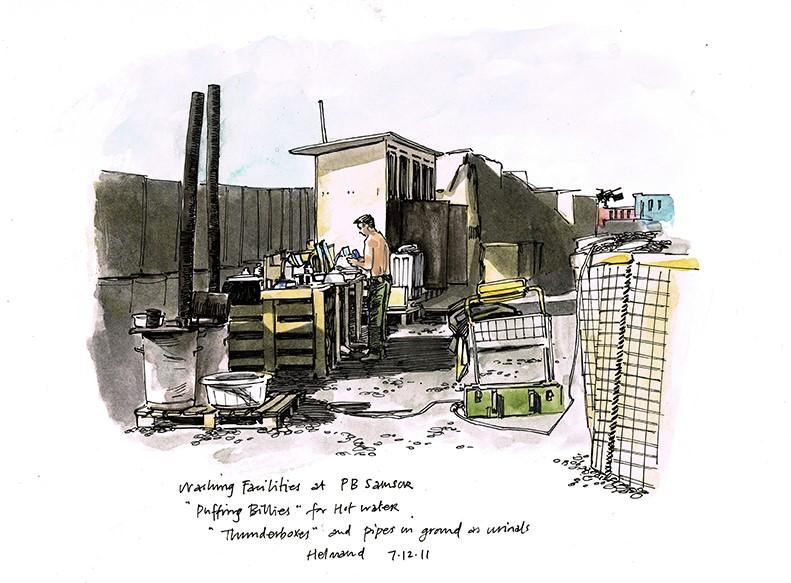
A total of 457 British personnel died in Afghanistan, including 32 from Wales, since Nato forces entered in 2001.
In 2014, Nato's international forces ended their combat mission, leaving responsibility for security to the Afghan army.
All images subject to copyright.

MABINOGI: LOST LEGENDS AND DARK MAGIC: Listen to the fantasy adventure series, based on medieval Welsh mythology
FIND SOME TIME TO READ: The Aberystwyth Book Club discusses Maggie O'Farrell's latest novel

- Published17 August 2021
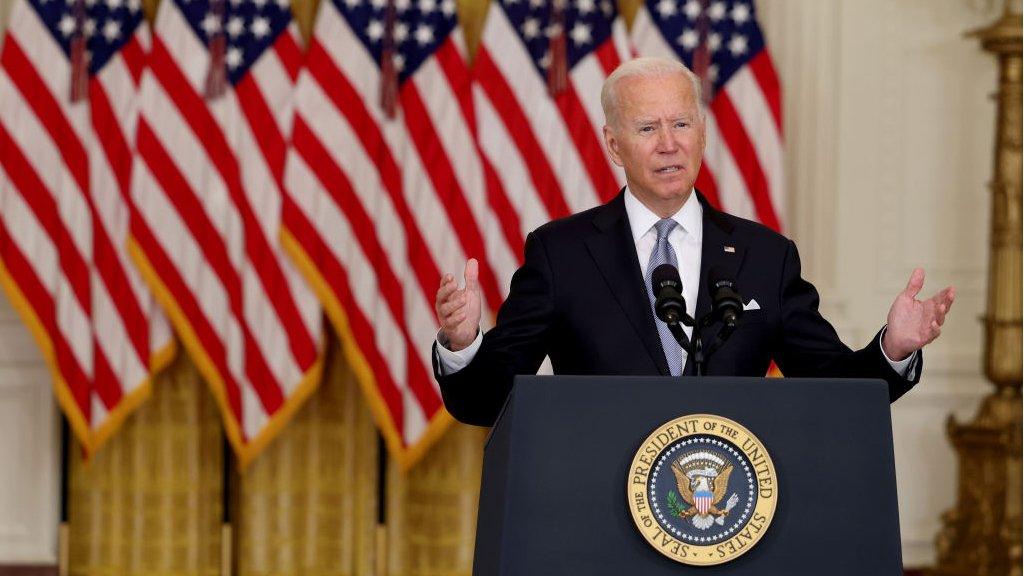
- Published16 August 2021
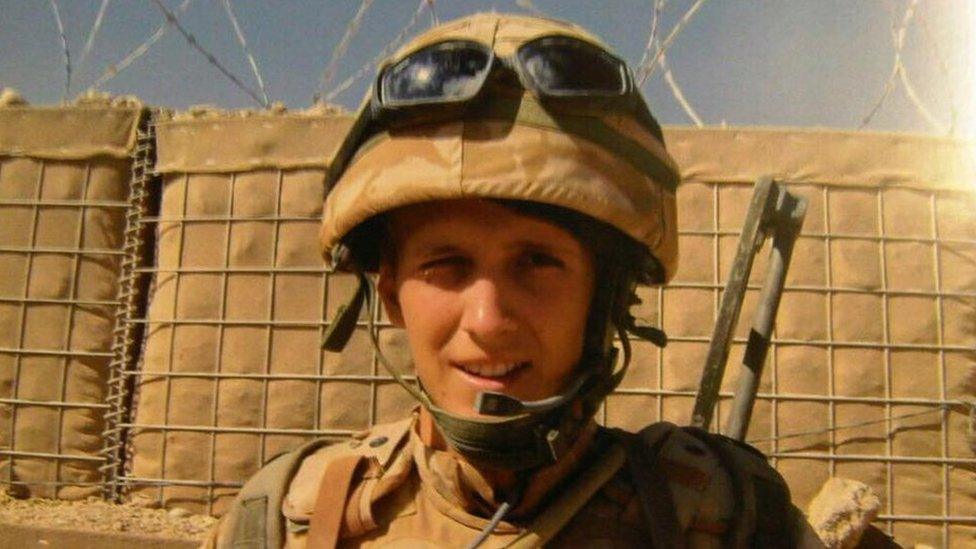
- Published9 June 2020
